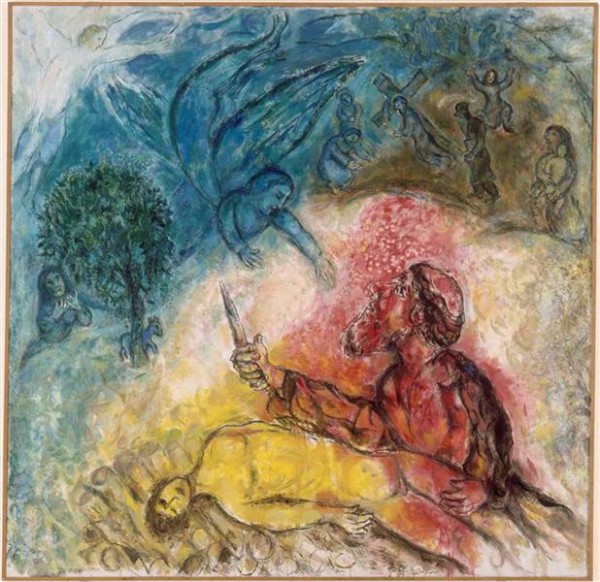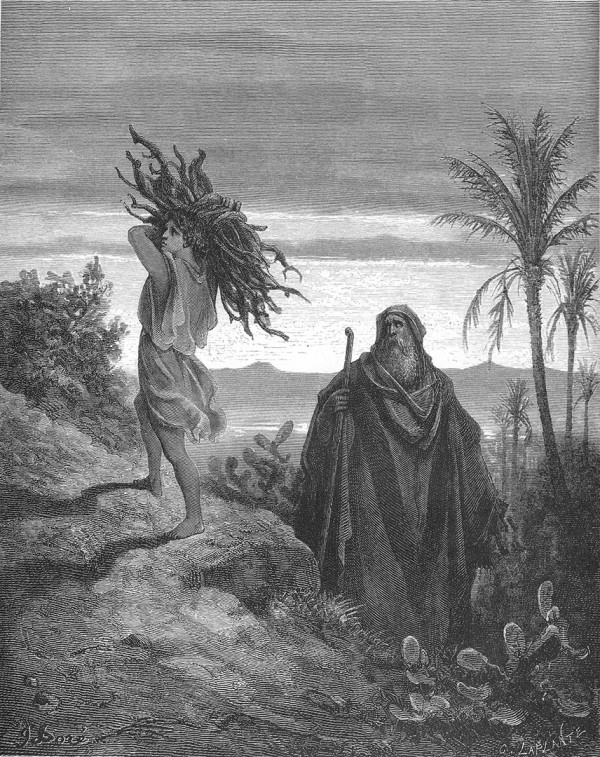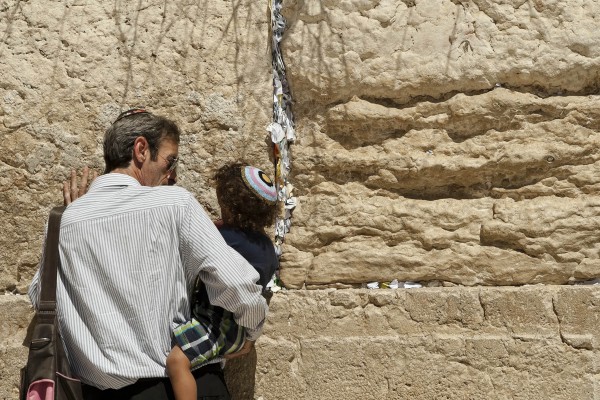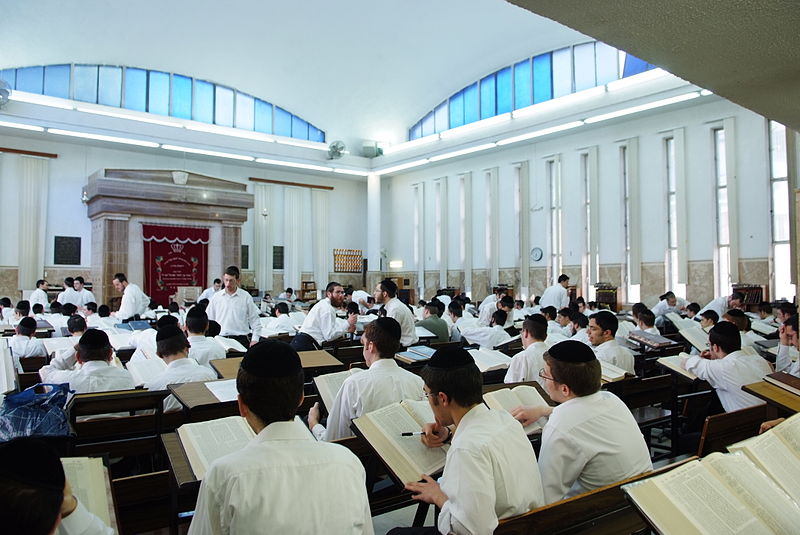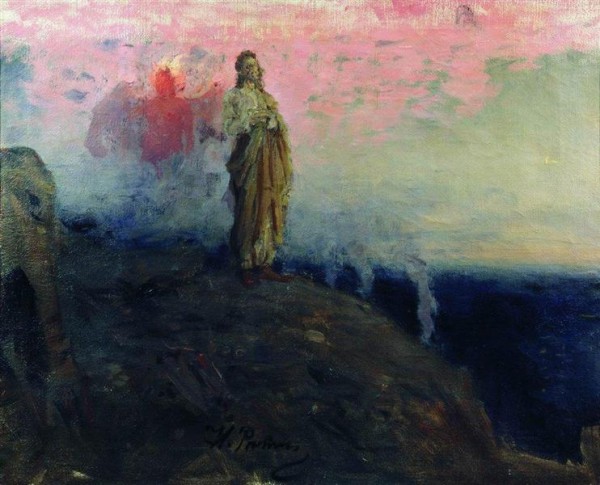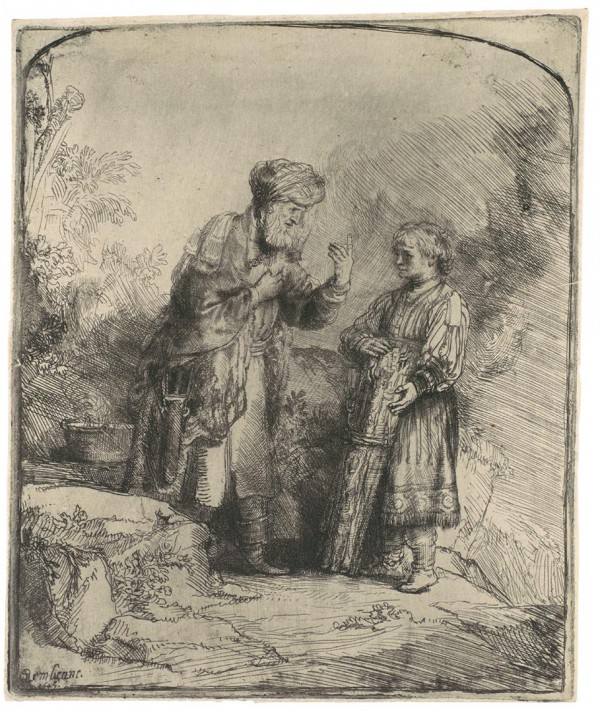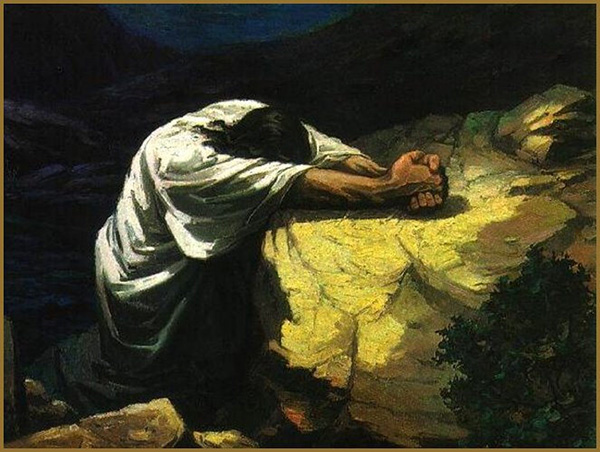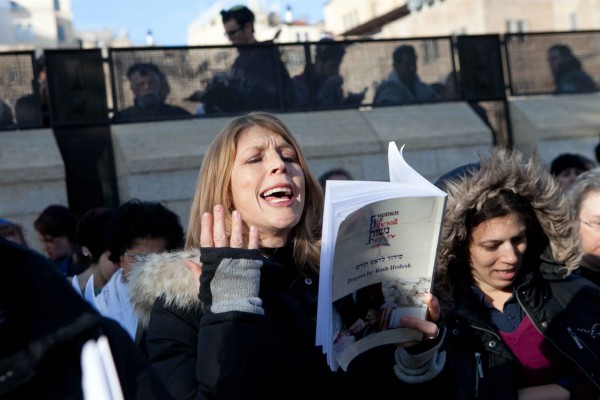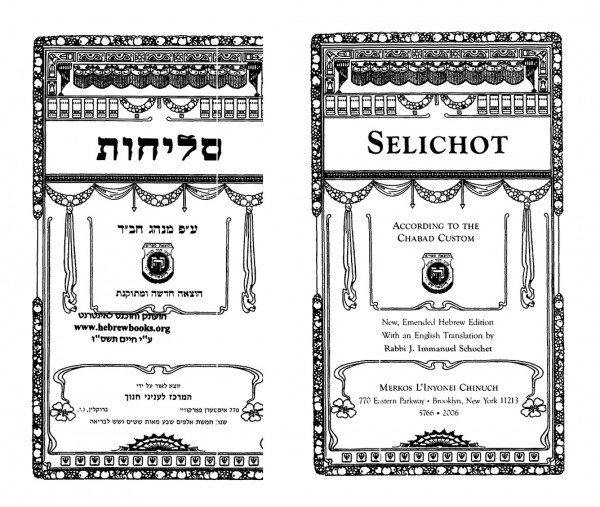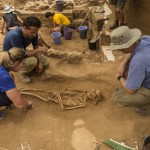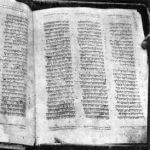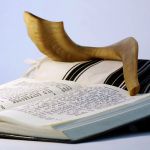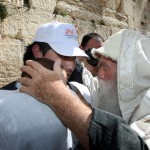“He said, ‘Take your son, your only son Isaac, whom you love, and go to the land of Moriah, and offer him there as a burnt offering on one of the mountains of which I shall tell you.’” (Genesis 22:2)
From song and poetry to wartime resistance, the Jewish world has wrestled with The Akedah—the binding of Isaac.
How could a Loving God we call “Father” ask any human father to sacrifice his son? And how could any loving father obey such a command?
Though the questions seem unsolvable, Jewish scholars and sages have answers that help us more clearly see who our Messiah is and what he would do when he comes.
A key to understanding this event and others in the Hebrew Scriptures (Old Testament) is to understand how types and shadows are strategically used to point us to future events, like the coming of the Messiah. We will take a look at how that works.
But first let’s begin by experiencing the Akedah with Abraham.
It Began With a Father’s Love
“Here I am,” Abraham calls out. He seems to recognize God’s voice.
“Take your son, your only son Isaac, whom you love,” God says, “and go to the land of Moriah, and offer him there as a burnt offering on one of the mountains of which I shall tell you.” (Genesis 22:2)
Early the next morning, after making preparations, Abraham, Isaac, and two men head off on a three-day journey to Moriah.
Today, we know this place as the Temple Mount in Jerusalem, about 100 km (60 miles) north of Be’er Sheva where they were living.
Upon arrival, Abraham and Isaac set off up the hill leaving the others behind.
Carrying the wood, Isaac asks, “Where’s the Lamb?”
“God Himself will provide,” Abraham answers.
On the hill, a stone altar is made. The wood is laid out. Isaac is bound and placed on the wood.
Abraham slowly takes the knife, placing it at Isaac’s throat ready to make a fatal cut.
Only at this point does God intervene by sending an angel to stop Abraham from sacrificing his son.
“Now I know that you fear God,” says the angel, and a ram suddenly appears to be used for the sacrifice, instead of his son.
That is the story of the Akedah.
Now, let us take a look at how types and shadows point us to future events.
 Types and Shadows
Types and Shadows
Your shadow says a lot about you. It can tell the world, to a certain extent, what you are doing and even how you are doing it. But in the end, it is not you. It only points to you, the real you.
Your shadow is called a type of you, and you are called the antitype. That is not an insult.
In a similar way, the Bible has many types or foreshadows that say a lot about their antitype in a future time. They tell the world, to a certain extent, what will happen and what it may look like.
They were not written to predict the future as a prophecy. But they can help us to better understand and recognize the antitype they point to, when it comes into view.
A type of the Messiah, for instance, can help us understand what the Messiah will be and what he will do, but that type is not him.
As you can imagine, identifying and interpreting types and antitypes is often based on one’s own perspective. Nevertheless, the Hebrew sages have a doctrine similar to “types and shadows” that help them understand how God had been working in the Hebrew Scriptures.
As Our Fathers Did …
Ma’aseh Avot Siman l’Banim (What our fathers did, our sons also).
This Hebrew principle tells us that some of what our Avot (Fathers) experienced, their descendants may also experience, not only in actions but also in character traits.
Those experiences present two kinds of blueprints:
“One of the overriding themes of the book of Genesis is that the actions of the forefathers foreshadow events that will happen to their descendants (ma’aseh avot siman l’banim).
“The blueprint of Jewish history is contained in this first book of the Chumash [known as the Law or the first five books of the Bible],” writes Rabbi Yissocher Frand on Israel’s Torah blog. (June 7, 2002)
The experiences of the Avot also present a personality blueprint of the future, explained the Russian Talmudist and ethicist Rabbi Chaim of Volozhin, Lithuania (1749–1821).
In this thinking, the Avot foreshadow our character legacy. For instance,
“If we have within ourselves the spiritual capability to go to martyrdom for the sake of Torah [God’s written Law] and Mitzvot [613 commandments in the Law], it is only because we have received this character trait as a legacy from our distant ancestors,” writes Rabbi Frand in Torah blog, Israel. (June 7, 2007)
This doctrine of “Ma’aseh Avot Siman L’Banim also has an aspect of prophecy in it.
There are predictions in the Torah that we can see, if we know how to go about looking for them.” (Rabbi Benjamin Blech, “Deed & Creed” Class 17, p. 3, Jewish Pathways, 2007, pdf)
We can see this prophetic aspect of Scripture in the mocking and animosity between Isaac (Father of the Twelve Tribes of Israel) and Ishmael (Father of the Arab peoples). Their tension demonstrates the continual attitude of hostility between the Jewish people and the Arab nations today (Genesis 21).
In another example, Pharaoh sends Abram and Sarai out of Egypt with gifts after God brings plagues on his home (Genesis 12:17–20).
Four hundred thirty years later, Pharaoh sends the Israelites out of Egypt after God brings plagues on his land. They leave with gifts (Exodus 12:35–41; Psalm 105:37).
Now, what about Abraham who is asked to sacrifice his beloved son, Isaac? The one he loves. The one who brings joy. The one named Laughter.
Is there an aspect of foreshadowing and prophecy to this story?
Secular View: The Akedah is a story for Abraham’s time
Some believe this story is just that, a story for its time. It simply demonstrates how the Hebrew nation was established by God to be different than the pagan nations surrounding it.
The implication is that God tested Abraham, but that God did this to show how acceptable human sacrifice was in ancient times, and that the one true God would have nothing to do with it.
The fact is, God clearly does not condone child sacrifice.
Sixteen passages in the Bible tell us that child sacrifice is condemned as an abomination before God (Leviticus 18:21; 20:1-8; Deuteronomy 12:31; 18:10; 2 Kings 13:27; 16:3; 17:17, 31; 21:6; 23:10; Jeremiah 7:31; 19:5; Ezekiel 20:31; Micah 6:7; 2, Chronicles 28:3; 33:6).
So, is the Akedah simply a story?
Jewish Views
View 1: The Akedah is a test prompted by Satan.
Rabbis have argued in the past that God tested Abraham at the prompting of Satan, similar to how Satan tested Job, with God’s approval (Job 1:6–22).
We read in Rabbinic literature that Satan was accusing Abraham before God, saying,
“‘Of every feast that Abraham made, he did not sacrifice before You one bull or one ram!’ He [God] said to him, ‘Does he do anything but for his son? Yet, if I were to say to him, “Sacrifice him before Me,” he would not withhold [him].’” (Rabbi Shlomo Itzhaki (1040–1105), known as Rashi in his commentary on Genesis 22, where he references a discussion of several Rabbis from the Mishnaic Period (AD 10–220) as recorded in the Talmud: Sanhedrin 89b)
This idea that God was challenged by Satan to test Abraham made it into popular culture when the late Leonard Cohen, a Jewish music artist, rebuked Congress for sending America’s sons off to war.
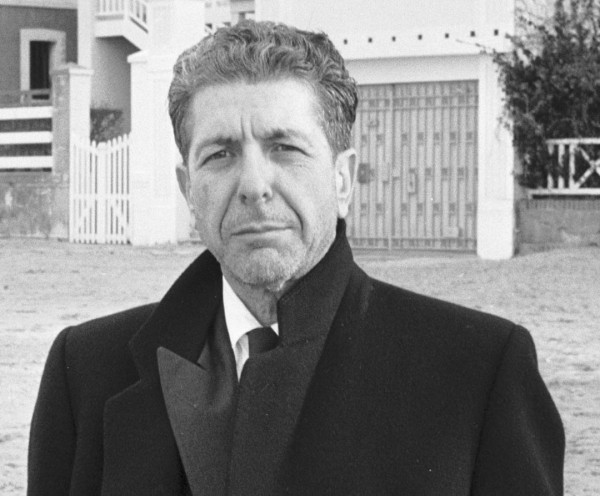
Leonard Cohen (1934-2016) was raised in an Orthodox Jewish home in Canada and became a notable singer, songwriter, musician, painter, and poet worldwide. (Photo: 1988, wikicommons)
In his 1969 song, The Story of Isaac, Cohen wrote:
You who build these altars now,
to sacrifice these children,
you must not do it anymore.
A scheme is not a vision,
and you never have been
tempted by a demon or a god.
You who stand above them now,
your hatchets blunt and bloody,
you were not there before.
When I lay upon a mountain
and my father’s hand was trembling
with the beauty of the world.
But we don’t read in Scripture that Satan tempted Abraham as we do with Job, so is that what really happened?
View 2: The Akedah is a type of atonement
God set up a process for the Hebrew people to atone or cover their sins so they can get right with Him.
Part of that process involved a blood offering from a spotless animal, often a lamb, goat, or bull (see Leviticus 4 and 16).
Many Rabbis today teach that human blood has never been an acceptable offering to the Lord and cannot atone for the sins of man. Therefore, these Rabbis say that according to Judaism, the Akedah cannot foreshadow an atonement by a person such as Yeshua, as Christians claim.
But we have found Rabbinic commentaries on the Akedah that seem to say otherwise.
In Scripture, we are told that Abraham “took the ram and sacrificed it as a burnt offering instead of his son.” (Genesis 22:13)
Is it not enough that God provided a ram? Rashi asks, “Why does Scripture also say, ‘instead of his son’?”
These four words don’t have to be there. Or do they?
Rashi, one of the most revered and often quoted Jewish sage explains why it’s important to know that the ram is offered instead of Isaac:
“Over every sacrificial act that he [Abraham] performed, he prayed, ‘May it be [Your] will that this should be deemed as if it were being done to my son: as if my son were slaughtered, as if his blood were sprinkled, as if my son were flayed, as if he were burnt and reduced to ashes.” (Tan. Shelach 14]
If Rashi is correct, then every time Abraham sacrificed a lamb or goat, he thought in his mind and heart that he were slaughtering his own son Isaac and sprinkling his blood over the altar.
Why would Abraham consider such a thing if God does not accept human blood as a covering for sin?
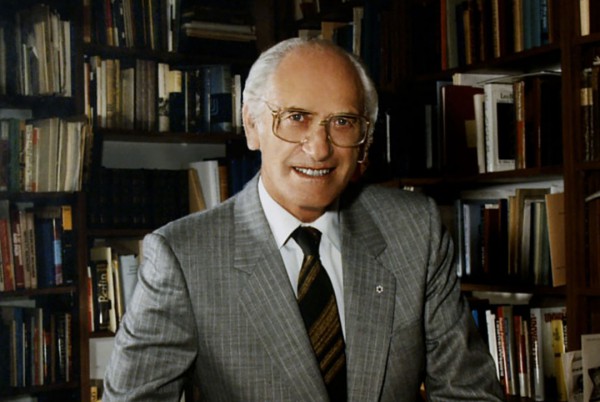
Wolf Gunther Plaut (1912–2012) was the senior scholar and Reform Rabbi of Holy Blossom Temple in Toronto, Canada for several decades.
A renowned Reform Jewish Rabbi of today answers:
“There was a remarkable tradition that insisted that Abraham completed the sacrifice and that afterward Isaac was miraculously revived. According to this haggadah [telling], Abraham slew his son, burnt his victim, and the ashes remain as a stored-up merit and atonement for Israel in all generations.” (Rabbi W. Gunther Plaut, The Torah: A Modern Commentary 1981, p. 151)
Clearly, some Rabbis believed that a single, willing, human sacrifice on behalf of mankind would atone for sin.
Even Jewish scholars acknowledge the Hebrew roots of this concept. Daniel Boyarin, professor of Talmudic Culture at the University of California, Berkeley writes in his book The Jewish Gospels:
“The notion of a dual godhead with a Father and a Son, the notion of a Redeemer who himself will be both God and man, and the notion that this Redeemer would suffer and die as part of the salvational process.
“At least some of these ideas, the Father/ Son godhead and the suffering savior, have deep roots in the Hebrew Bible as well and may be among some of the most ancient ideas about God and the world that the Israelite people ever held.”
Christian View: The Akedah Foreshadows Yeshua’s Sacrifice
For Believers in Yeshua (Jesus) as the Messiah, the Akedah is much more than a story.
Abraham is the first Avot, the Father of our Faith whose willingness to sacrifice his son is destined to repeat itself in one of his descendants.
Isaac’s role was no less crucial than Abraham’s in the eyes of the Rabbis. After all, Isaac was willing to be sacrificed in obedience to his father and the Almighty.
Let’s look at the parallels between God’s testing of Abraham to sacrifice Isaac in Genesis 22 and God’s willingness to sacrifice His Son Yeshua (Jesus) as seen throughout Scripture.
God issues His command—His will—to sacrifice a beloved son
Son of Abraham: God said, “Take your son, your only son, whom you love—Isaac—and go to the region of Moriah. Sacrifice him there as a burnt offering on a mountain I will show you.” (Genesis 22:2)
Son of God: “It was YHWH’s will to crush Him and cause Him to suffer, and though YHWH makes His life an offering for sin.” (Isaiah 53:10; John 3:16)
The sons accept God’s will
Isaac does not rebel, but is bound and laid on the altar and wood, awaiting his end. (Genesis 22:6–11)
Yeshua affirms “not My will but Thine be done” to His Father in heaven while in the Garden of Gethsemane. (Luke 22:42; Isaiah 53:7)
The sons carry the wood
Isaac carries the wood as he and Abraham ascend Mount Moriah. (Genesis 22:6)
Yeshua carries the stake as He struggles toward Golgotha. (John 19:17)
God provides a substitute
“God Himself will provide the lamb for the burnt offering, my son,” Abraham says to Isaac. He went over and took the ram and sacrificed it as a burnt offering instead of his son. (Genesis 22:8, 13)
God Himself provided “the Lamb of God, who takes away the sin of the world!” (John 1:29)
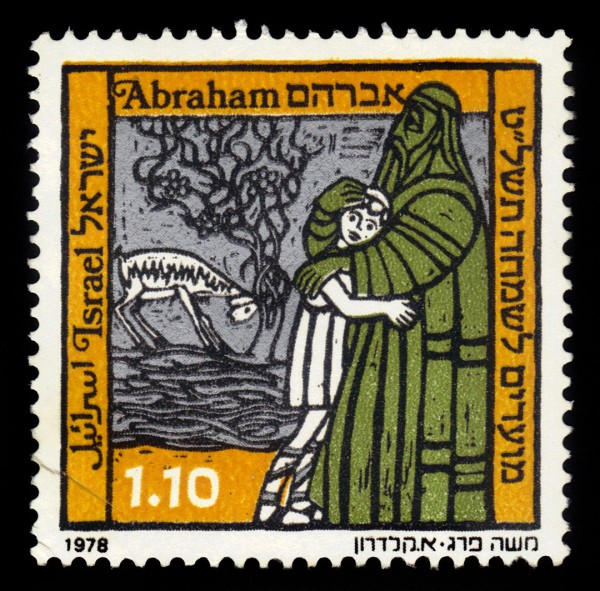
Israeli stamp (c. 1978) depicting Abraham embracing his son Isaac after receiving him back from God (1978).
Loved ones grieve for three days
Isaac was all but dead, in Abraham’s heart and mind during their three-day journey to Mount Moriah.
Yeshua was dead. His followers grieved during His three days in the tomb.
Faith in the resurrection
Of Isaac, the early Jewish sage, Rabbi Eliezer (c. AD 40–120) writes that Abraham believed in the resurrection of the dead:
“When Avraham Avinu (our father), put the knife to Isaac’s neck, Isaac’s soul flew away and left him. In effect, he died.
“When Avraham then heard the Heavenly Voice proclaim, ‘Send forth not your hand against the lad,’ the soul returned into Isaac’s body. “Isaac thus personally experienced the phenomenon of Techiyas haMeisim [resurrection of the dead].
“At that moment, Isaac opened his mouth and recited the blessing: Blessed Are Thou who brings the dead back to life.” (Pirkei D’Rabbi Eliezer, chapter 31; see also Hebrews 11:17–19)
Of Yeshua, even though the apostles mourned His death while He lay in the tomb, “with great power, the apostles continued to testify to the resurrection of the Lord Yeshua” after he resurrected. (Acts 4:33)
Then and Now: God’s Divine Forgiveness in the Akedah
Both Jews and Christians agree that Genesis 22 is a magnificent example of a father/son relationship of love, obedience, sacrifice, and faith.
In fact, Jewish communities worldwide read this passage on Rosh Hashanah (the Jewish New Year) along with prayers called Selichot (סליחוﬨ), prayers for forgiveness.
In some of these prayers, the Jewish People appeal to God’s mercy with Abraham during the Akedah as they seek God’s divine forgiveness for themselves today.
One part of many such prayers is translated below.
“In He who answered our father Abraham on Mount Moriah, may He answer us. He who answered his son Isaac, when he was bound on the altar [the Akedah], may He answer us. …” (Selichot According to the Chabad Custom)
The Akedah in the minds of the Rabbis was an act of such magnitude that Jewish People continue to call out to God for forgiveness based on the pious act of Abraham and the selfless sacrifice that Isaac (our Avot/type) submitted to.
The Good News is that today Believers cry out for God’s divine forgiveness based on the selfless sacrifice that Yeshua (the Son of Man/antitype) submitted to, on behalf of all mankind.
“He did not enter heaven to offer Himself again and again, like the high priest here on earth who enters the Most Holy Place year after year with the blood of an animal. If that had been necessary, Messiah would have had to die again and again, ever since the world began. But now, once for all time, He has appeared at the end of the age to remove sin by His own death as a sacrifice.” (Hebrews 9:25–26)





